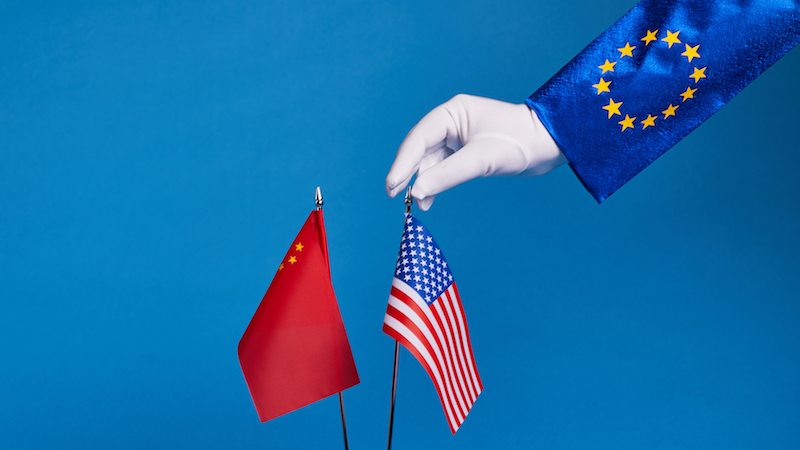EU foreign ministers have set a collision course with China in a statement calling for the same rules to bind all countries under the Paris climate deal.
In a 9-page statement on climate diplomacy objectives, released at the conclusion of a council meeting on Monday, ministers stressed the need for more action. The window to hold global warming to 2C, the upper temperature limit agreed in Paris, was “fast closing”, they warned.
UN talks this year on implementing the Paris Agreement must create “a universal regime with rules applicable to all”, the statement said.
China and allies are calling for a two-tier rulebook, with less stringent reporting requirements for developing countries. It is one of the key issues for negotiators to thrash out by a December 2018 deadline.
Ministers also emphasised the importance of raising collective ambition through the year-long “Talanoa dialogue” process, but stopped short of promising a review of EU emissions reduction targets.
There were assurances on other developing world priorities including climate finance and pre-2020 commitments.
Climate talks: Unwritten Paris rules dominate as tense year of diplomacy begins in Japan
Key points in the wide-ranging document include:
- Shipping urged to do its “fair share” of emissions cuts in line with the Paris Agreement, under a sector-wide climate plan to be agreed at the International Maritime Organization in April
- The International Civil Aviation Organization urged to adopt “robust” rules on a carbon offsetting scheme for air travel
- A call for more contributors to climate finance for the developing world, noting the EU’s leading role; plus affirmation of the $100 billion a year global target for 2020
- Moves to integrate climate concerns into security, development, disaster risk reduction and trade policies
- Plans for a high-level event on climate and security to be led by EU foreign affairs representative Federica Mogherini in Brussels this June
Camilla Born, senior policy adviser at thinktank E3G, said the broad scope of the statement showed “a maturing of European climate diplomacy”.
But the failure to signal any increase in EU ambition was “a missed opportunity,” she added. “They need to take the action and ambition part of the discussion seriously if they are going to get what they want on the rules.”
Since president Donald Trump declared his intention to withdraw the US from the Paris Agreement, it has fallen to the EU to defend principles of joint interest – such as holding China to high standards of carbon accounting.
Trump climate adviser George David Banks – who left his post last week – said preventing a hard divide between rules for rich and poor countries was “number one priority” at the last round of UN talks in Bonn.
If Brussels can get the rest of the world to sign up to universal rules, it makes it easier for the US to potentially rejoin the Paris Agreement, said Born: “Europe has to step up and be a part of that conversation, so that the US can participate again in future.”
